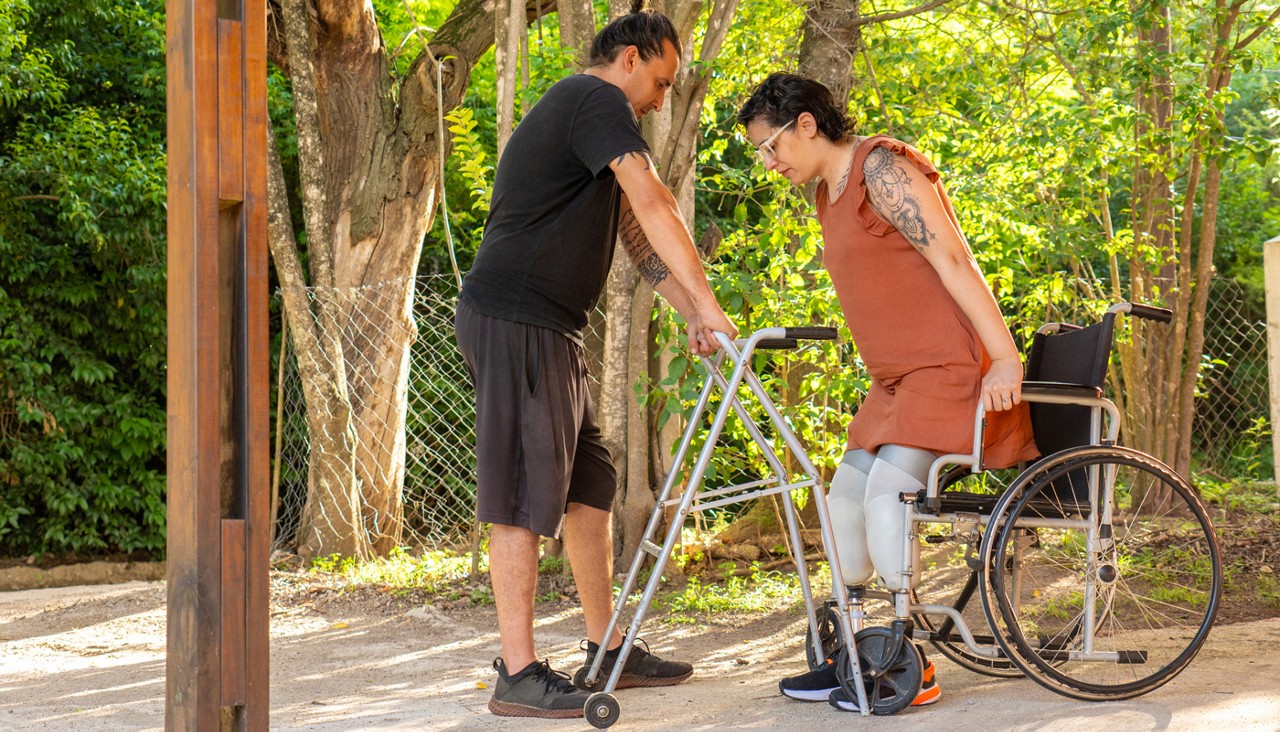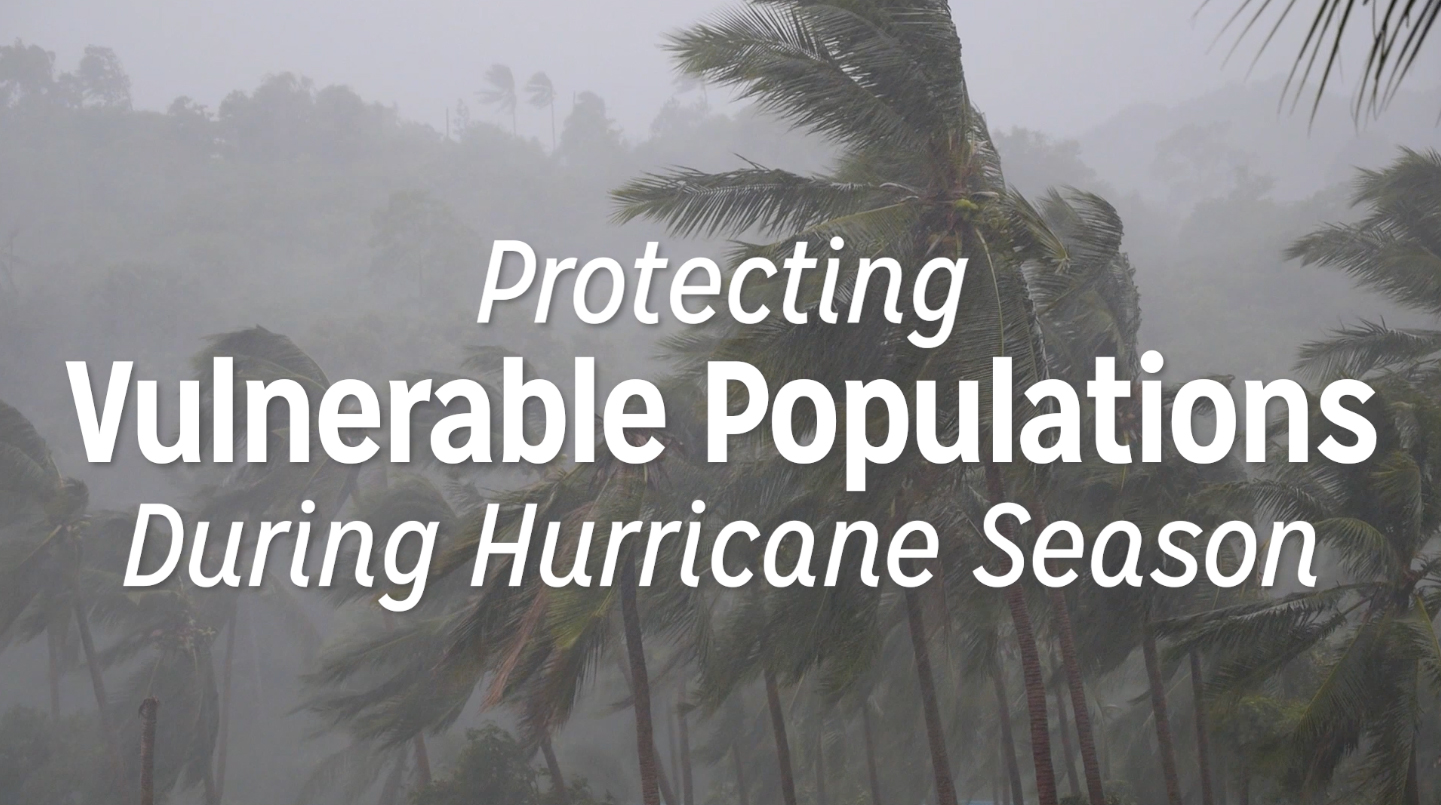To ensure you receive the best service possible,
please enter your zip code below:

When a hurricane strikes, not everyone faces the storm on equal footing. Vulnerable populations—including seniors, people with disabilities, low-income households, the chronically ill, and others with special needs—often encounter more complex challenges during natural disasters.
Lack of transportation, communication challenges, and disruptions to medical treatment can make it more difficult for these groups to evacuate, shelter safely, and recover after a storm passes. By considering these unique needs in advance of a storm, caregivers and community members can protect those most at risk when the storm arrives.

Vulnerable populations include individuals who may face additional challenges in responding to and recovering from a storm due to physical, mental, financial, or social limitations. These folks can include:
Understanding the unique needs of these groups enables community members to develop more inclusive strategies that keep everyone safe during a storm.

In an emergency, timely and accurate information is essential to understanding changing weather conditions and when to evacuate. Language barriers, literacy issues, lack of access to smartphones or Wi-Fi, vision impairments and cognitive problems can prevent community members from receiving essential information.
Emergency management agencies can help bridge this gap by providing essential information in multiple languages and various audio and visual formats. Establishing a phone tree or neighbor notification system can help disseminate information about an impending storm.
For most people, evacuating from an incoming storm is as easy as packing up your car and driving to a safe location. But for many, it's more complicated. Those without access to personal vehicles or those who rely on wheelchairs or medical transport will have a more difficult time evacuating.
Some communities offer registries for individuals who cannot evacuate on their own, allowing emergency planners to make personalized evacuation arrangements in advance of storms. Volunteers or medical transport can be coordinated to help those who are unable to evacuate on their own.
Shelter during a storm is especially challenging for the unhoused community. This group may be unaware of the impending storm and, therefore, unprepared to evacuate and find shelter. Mobile outreach units can be deployed to reach these communities and provide them with safe shelter and social service support after the storm passes.

One of the most pressing issues for people during an emergency is access to healthcare and medications. Storms may cause the power to go out and pharmacies and hospitals to close, leaving medically compromised individuals without access to life-saving medical treatment.
It can quickly become an emergency for those reliant on dialysis, oxygen and medications. Here are some things that can be done in advance of a storm:
It is also important to consider where these medically fragile individuals can be sheltered in the event of an evacuation.
Typical shelters often lack the necessary infrastructure to support them. Communities should consider including this possibility in their planning and register individuals who may need such specialized services.

Seniors, especially those living alone or with cognitive decline, are among the most vulnerable during a storm. Many seniors require assistance from caregivers to help with activities of daily living. However, when caregivers are cut off from them during a hurricane, the situation can quickly deteriorate, putting their lives at risk.
Caregivers need to establish backup plans in case they are unable to reach their patients in an emergency. Communities can also step in to create support systems for this situation, keeping this population safe. Building a "go bag" with emergency contacts, medical information, medication and other required items can help assist first responders when evacuating medically fragile individuals.
Preparedness doesn't happen in a vacuum. Community organizers need to consider not only the masses but also the vulnerable populations for whom traditional emergency planning is insufficient.
Vulnerable populations face unique and sometimes invisible hurdles during storms, making it all the more vital to prepare with empathy and inclusivity. Whether you’re checking on an elderly neighbor, helping someone register for evacuation assistance, or advocating for accessible shelters, your efforts can help ensure no one is left behind when the winds start to blow.
Be prepared
AAA Members know that being prepared for the unexpected is important, whether it's roadside assistance, member discounts on important items for emergency situations, or finding hotels.